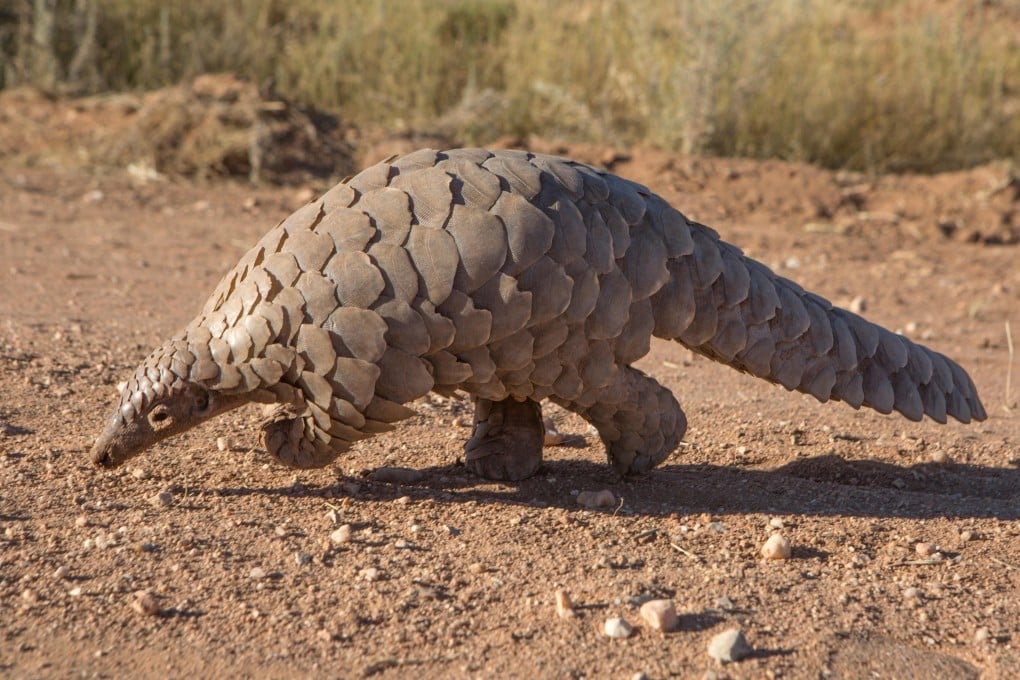Chinese and Vietnamese demand for pangolin scales and meat is pushing the shy, scaly animal to extinction
Despite having all the medicinal properties of fingernails, the animal’s scales are prized as a remedy for swelling, haemorrhoids, tight muscles and poor circulation, and its meat as a rare, ‘special’ delicacy

In November last year, customs agents at Hong Kong International Airport spotted something unusual as they X-rayed the baggage of a Chinese man who had just arrived from Ethiopia. They told the passenger, 44-year-old Lin Jinbao, he’d have to open his suitcases before being allowed to board a ferry to his next destination, Macau. Inside, the agents found 24 tightly packed aluminium foil pouches. Each was filled with hundreds of mottled, brownish-red flakes – some shaped like jagged circles, others resembling tiny spades.
Lin was swiftly arrested. The suitcases contained 48kg of pangolin scales, a once-obscure commodity that’s become wearily familiar to law enforcement agencies in Asian hubs. The pangolin, one of only a few scaly mammals known to science, looks a little like a large gecko crossed with an artichoke. It’s now believed to be among the world’s most trafficked animals, the victim of aggressive poaching operations set up to serve demand for its scales, which are considered by some practitioners of Chinese and Vietnamese traditional medicine to have healing properties, and its meat – a status symbol in Vietnam.
In April, customs officers at a Singapore port terminal inspected a shipping container purportedly full of frozen beef from Nigeria and found just under 13 tonnes of scales, with a value they estimated at about US$39 million. Less than a week later they pulled a similarly sized haul from a container that was supposed to contain seeds from the cassia plant. That many scales would have likely required the deaths of some 21,000 pangolins.
The number of animals being stripped from the wild is completely out of control. I fear they’ll be wiped out before we’ve adequately responded
Trafficking experts point out with alarm that these seizures are indicative of an enormous global trade along a sophisticated network, reaching from poachers in Central Africa to smugglers in Nigeria to middlemen across Asia to consumers in China and Vietnam. Even optimistic wildlife activists concede that they’re late to the problem. Until recently, they tended to focus on contraband from what are known in conservation circles as “charismatic megafauna”: species, such as elephants and rhinos, whose photogenic quality and symbolic import make drumming up public support and donor dollars comparatively easy.
Only in the past decade has the rise in pangolin trafficking become apparent – a consequence of rising prosperity in consuming countries and, perhaps, poachers switching opportunistically as other species have grown more difficult to trade.